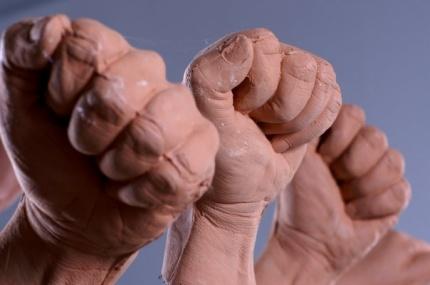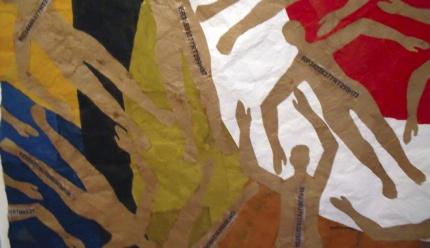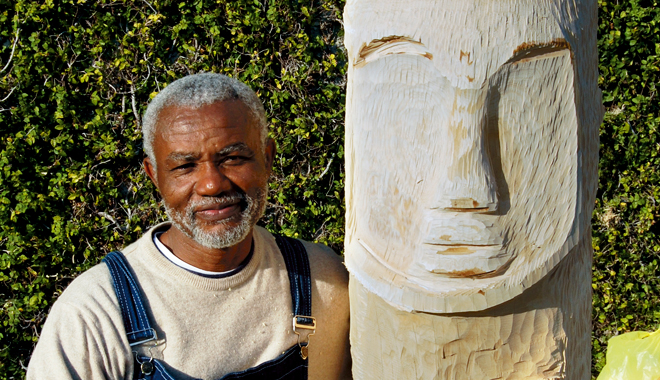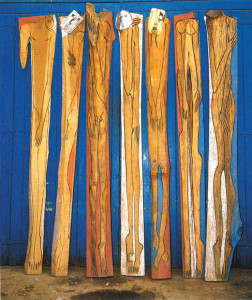
Genocide.
About Kofi Setordji:
“In 1957, Ghana became the first country south of the Sahara to gain its independence. The first president Kwame Nkrumah declared that, “The independence of Ghana is meaningless unless it is linked up with the total liberation of Africa.” Bearing in mind the chaotic trajectory of Africa, I wonder whether the dreams of those who fought for our independence are still valid today or did we miss our track.
In “Hands of Fate,” Kofi Setordji explores the legacy of the humanist and Pan-African ideals of the leaders of the 1950s. This series looks without complacency at post-colonial Africa, using the omnipresent hand to symbolize diverse concepts: the handshake represents unity and solidarity; the raised hand suggests the democratic vote; the fist introduces the notion of political struggle and social combat; while the outstretched hand embodies the destitution of a betrayed people.
Each part of the series presents an aspect of those dreams that have gone up in smoke. By means of the hand, Setordji urges Africans to take hold of their destiny; to be actors rather than passive spectators to their own history.
 Brain Drain.
Brain Drain.
After seeing the bulldozers dragging hundreds of victims of the Rwandan genocides out of a ditch like loads of rubbish, he himself decided that it was time to put his own hands into action. He spent two years recreating all of the elements of the tragedy: a mass grave, the victims, the refugees, the politicians, the ministers of the church, the soldiers, the judges and the witnesses – anonymous faces imprisoned in clay, stylized bodies in burnt wood, or a crow perched on a stick – all of these elements conceived in an approach of aesthetic neutrality that endows the whole project with a disturbing yet unsentimental power.
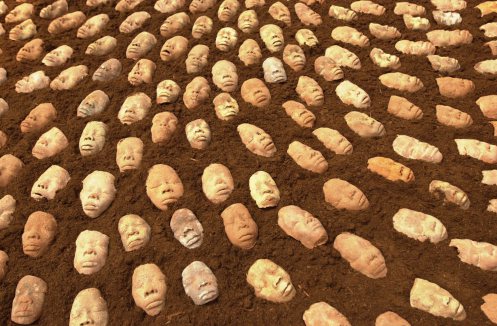 Scars of Memory.
Scars of Memory.
Hands of Fate.
“Scars of Memory” pays homage to the victims. But it is above all a warning against the detachment with which the world passively absorbs tragic images from elsewhere like scenes from a movie. “We only know about the number of people who died in Rwanda. We don’t know their names. We know nothing about their aspirations, their dreams, or their lives. All we know is that eight hundred thousand people died in three months. Those are the statistics.”
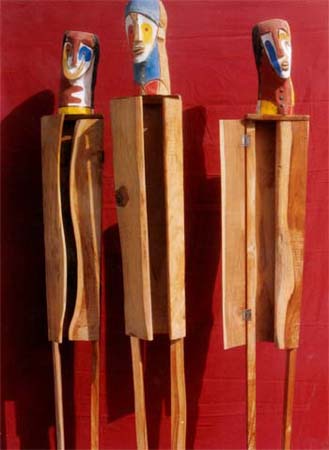 Masquerader.
Masquerader.
Notions such as responsibility, the failure to come to the assistance of those in danger, and otherness underlie his work. Otherness is again the basis of the series he started during his residency at the Rockefeller Foundation’s Bellagio Center, where everybody is the other.
“Identity and the Other” probes the impact of globalism on national cultural identity. Although this series tackles a larger spectrum the approach is the same – a splitting up of the work into sequences that reflect many manifestations of humanity in crisis.”
(from brochure Rockefeller Foundation, written by N’Goné Fall)

